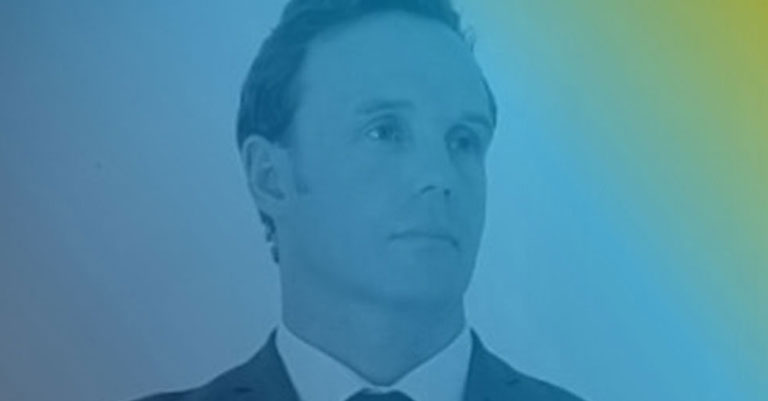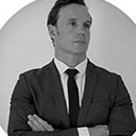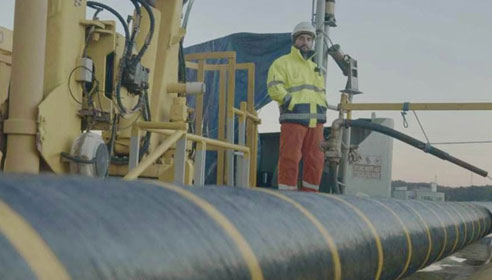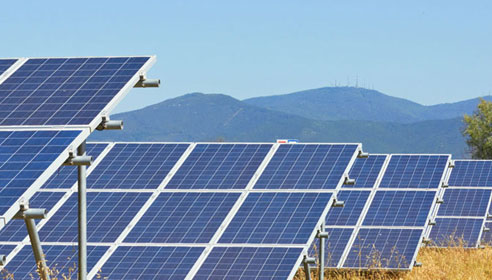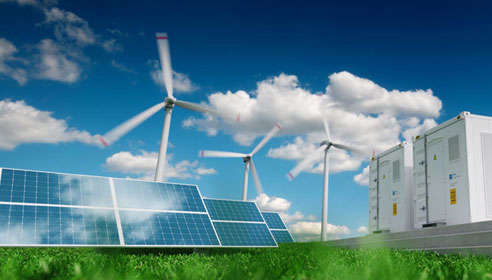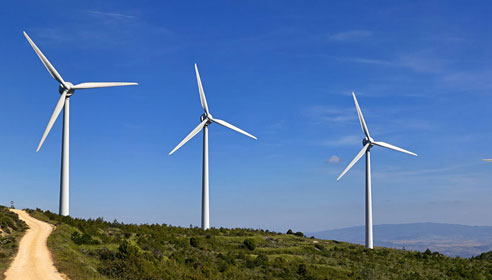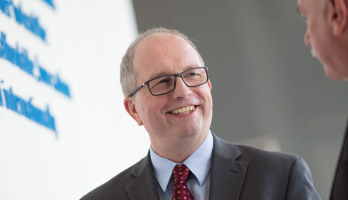I have had a long and varied career with ESB International for almost two decades now. Since 2017, I have been ESB International’s country manager in Oman, taking care of day-to-day operations and working as business development manager. I also provide project management on one of our strategic contracts with Oman Power and Water, supervisory consultancy for Ibri and Sohar 3.2 GW CCGT independent power projects.
What has struck me in the time I have been working and living here is that although Oman and Ireland appear very different at first glance, there are many similarities. Obviously, the weather is a significant exception! But, while Oman has a much larger land mass than Ireland, it has a similar size population, load profile, transmission system and generation capacity.
The challenges associated with Oman’s diversification and low carbon future strategies, de-centralisation of the energy value chain and liberalisation of the energy market have many parallels with Ireland’s past, current and future journey and ESB’s Brighter Future Strategy.
We have 45 years’ experience in delivering important capital and transformational projects for our clients
These are some of the many areas where ESB International is bringing its know-how to the table.
Over its 93-year history, ESB (Electricity Supply Board of Ireland) has brought the transformative power of electricity to the cities, towns, villages and remote areas of Ireland. This has helped transform the country into one of the most successful global economies, enjoying the third highest standard of living in the world.
For over 45 of those years, ESB International has been delivering important capital and transformational projects for our parent company, and we’ve been sharing that utility expertise in over 120 countries worldwide; with a 44-year legacy in transmission and distribution in neighbouring Bahrain.
As with many middle eastern countries, Oman is undergoing significant change in the energy value chain, with sustainability and diversification from fossil fuels at the heart of government policies. ESB International is embedded in this change, providing a range of consultancy services across the full energy value chain from generation to transmission.
Utility experience
The experience we bring from our parent company, ESB, as a diversified, vertically integrated utility – operating across the electricity market from generation, through transmission and distribution to the end customer – puts us in good stead. We have gained valuable lessons from making the transition to a liberalised energy market with the unbundling of various group business functions. We are applying what we learnt on this journey to projects in Oman and worldwide.
Given the depth of our experiences, ESB International has already advised on the semi-privatisation of Oman’s transmission company. We have also provided supervisory services to the government power purchaser during execution of 3.2 GWs of power plants.
The technical and commercial privatisation of a company or supervising and testing of a power plant is one element, but given our experience, we are also able to advise on the effects of that element – and how the asset or process will look like in 5-25 years’ time. That’s where we add value. A typical consultant might come in to do a job – and not have the utility experience we have in terms of planning the life-cycle of projects and management of change
The values of a utility are key to what ESB International offers – not only to develop an asset but sustain that asset through periods of change. This follows into how it affects customers on the very end of that value chain. It is about having a holistic view of the market and applying our experience to go the extra mile for our clients.
Liberalisation
Oman’s policy makers are leaders in the region and among the first to seek to liberalise the electricity market. ESB International is advising on this process.
We were at the leading edge of the electricity market liberalisation in Ireland. The spot price market was one of the first markets that was developed which has now transitioned into the single energy market. As a utility we had to transition into a new way of generating and selling power. A more flexible market requires more flexible plants and with the ongoing integration of renewables into our hydro and thermal generation fleet in both Ireland and the UK, there was and still is a lot of learning in terms of what flexible generation looks like and what impact it has on power plants and the wider market.
That is a key part of what we translate into our international business. We are working collaboratively with the transmission company in Oman and their stakeholders to prepare for that transition, advising them on the market integration with the power plants, the market manager, the impact of renewables on their system and the changes which may be needed to their grid codes and other techno/commercial considerations. That is a real transition-of-knowledge project.

